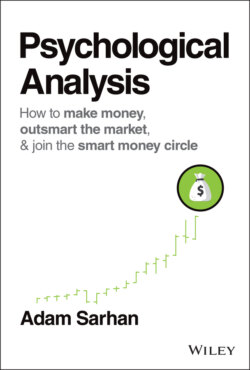Читать книгу Psychological Analysis - Adam Sarhan - Страница 57
Short‐Term: Scalping
ОглавлениеShort‐term trading ranges from high‐frequency traders—people who use computer algorithms that are built to capitalize on extremely short‐term price movements—to short‐term discretionary traders—day traders—who sit in front of their screen watching every tick. “Every tick” is market jargon, and it means “every time the market moves.”
People who use high‐frequency trading (HFT) tend to trade faster than you can read this sentence. They are a relatively newer force in the market and they place trades based on computer algorithms that can process information faster than the human eye can read it. Just like every other trading system, some HFT algorithms work, and some do not. If you decide to focus on day trading or very‐short‐term strategies, just be aware that the odds of success are stacked against you. Just about every credible piece of research shows that super‐active short‐term discretionary traders underperform the market. Research also shows that there is an inverse relationship between the number of trades you make and your performance.
That means that most people will do much better if they get out of their own way and let their money work for them. That may seem counterintuitive because we are taught to work hard for our money, but on Wall Street, you want to learn to step back and be okay with your money working hard for you.
